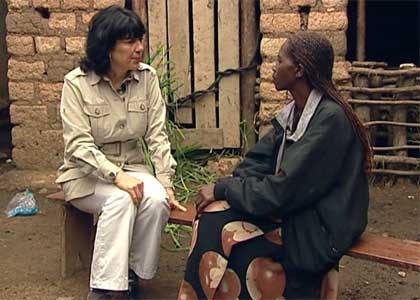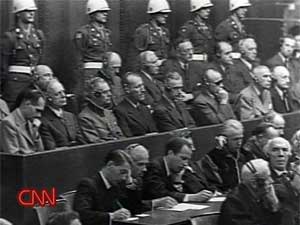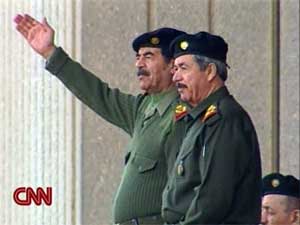
On CNN tonight, Christiane Amanpour looks at 70 years of genocide, in a two-hour CNN Presents special impressive not only in its depth and breadth, but also in its seriousness and relevance. On ABC, meanwhile, in a one-hour special, Barbara Walters interviews Miley Cyrus, Michael Phelps and eight other people she considers "fascinating."
Is it unfair to compare the two? I say no.
Barbara Walters, after all, is one of the true pioneers of women in broadcasting. She fought her way, against steep odds and harsh opposition, from window-dressing Today show "girl" to the first female co-anchor of a network newscast. And like legendary broadcaster Edward R. Murrow, who alternated between the serious issues of See It Now and the personality puffery of Person to Person, Walters scored coups, and drew audiences, for both her news scoops and her celebrity interview specials.

But Walters, outside of The View, is doing a lot less than she used to -- and tonight's Barbara Walters Presents: The 10 Most Fascinating People of 2008 (at 10 ET), one of the few annual specials still on her schedule, is overloaded with the likes of Will Smith, Tom Cruise and Frank Langella. As Saturday Night Live joked recently, the lineup proves, if nothing else, that Barbara Walters is easily fascinated.
Over on CNN, though, Christiane Amanpour's Scream Bloody Murder is a breath of fresh, mature, intelligent air. This two-hour special takes a very difficult subject, the history of genocide, and looks at it unflinchingly. It's not a subject that makes the United States come off as particularly noble -- but the history is crucial to understanding so much about the world today, including our place in it.

"We know how it begins," Amanpour says at the start. "We know what happens when evil goes unchecked." Yet despite the history of Nazi atrocities, and the assigning of guilt at the postwar Nuremberg Trials, the intentional slaughter of entire ethnic populations has resurfaced time and again, from Cambodia and Rwanda to Iraq and Darfur.
Amanpour asks why -- but also asks, of former officials and officers as well as survivors, how things were allowed to escalate and then turn horribly deadly. And about halfway through her chronological overview, she herself shows up, as a young CNN international reporter, asking the same questions then she's asking now, decades later.

"In the era of 24-hour cable news, nobody could say we didn't know," she says, and shows how deftly, and how coldly, several U.S. administrations danced around defining an ethnic cleansing or sectarian slaughter as genocide. As one former official tells her, "You can't call it genocide and then do nothing about it." So the word went unspoken, while the U.S., in one shameful instance, supported Saddam Hussein and his deadly dictatorial regime before we denounced it.
Television, broadcast even more than cable, is doing less of this serious documentary work all the time. Amanpour is to be applauded, and Scream Bloody Murder (9 p.m. ET) is to be seen, appreciated and, one hopes, remembered. And here's hoping executives at the broadcast networks will watch -- and perhaps, ask themselves, "Why aren't we doing this?"
That's a great question. And the answer, to those networks, is: You could be, and you should be. On MY list of the most fascinating people of 2008, I'd put Christiane Amanpour way up there.